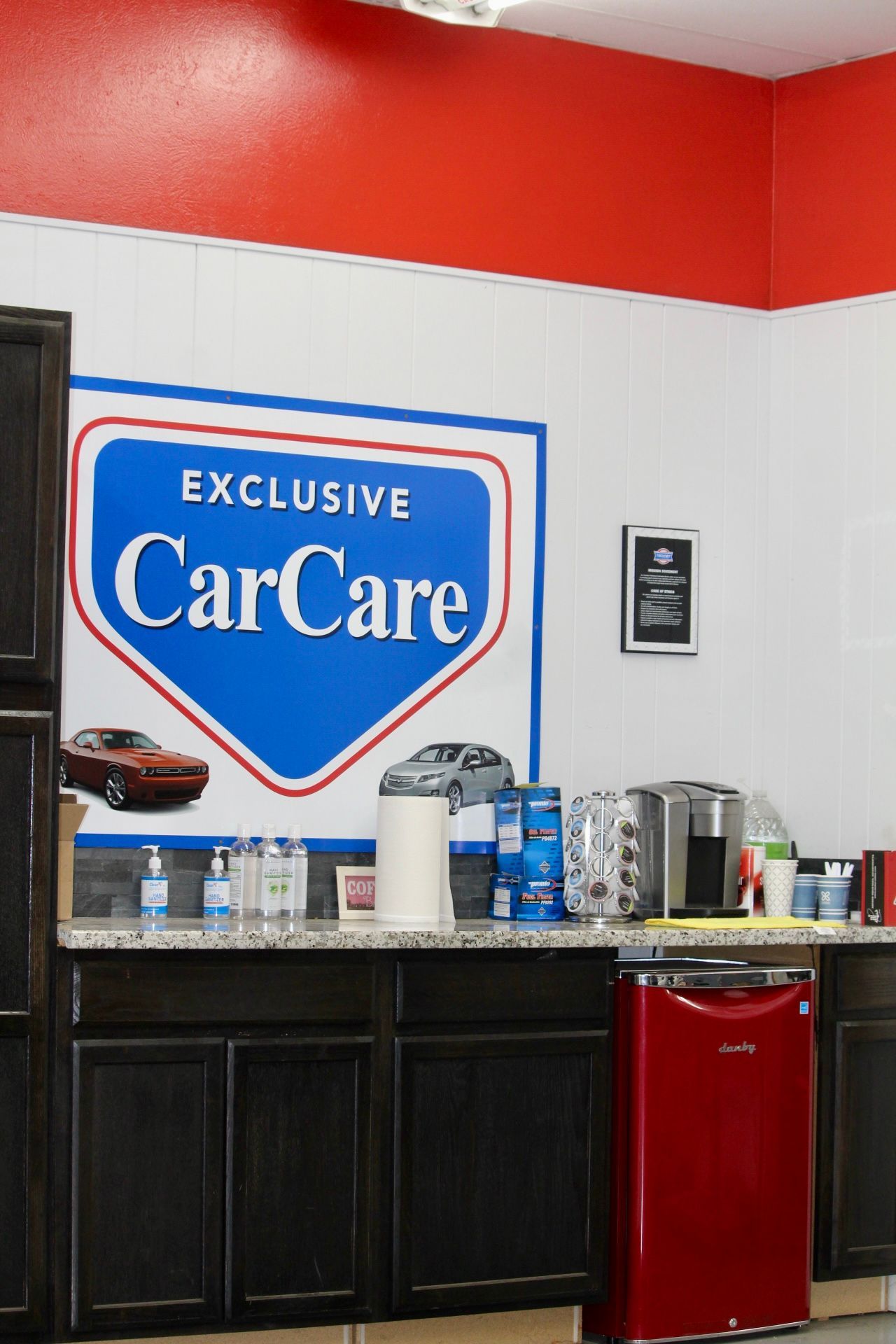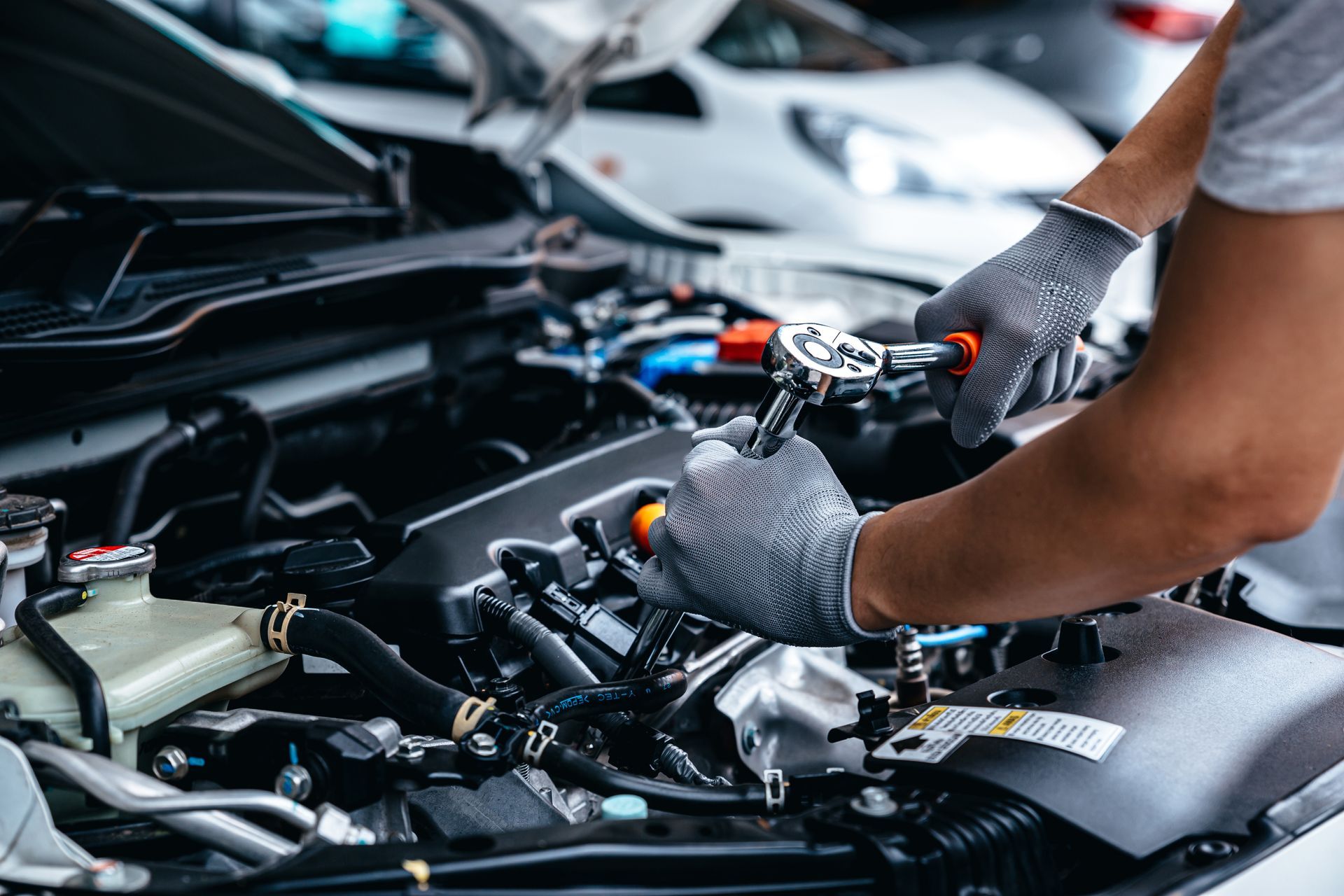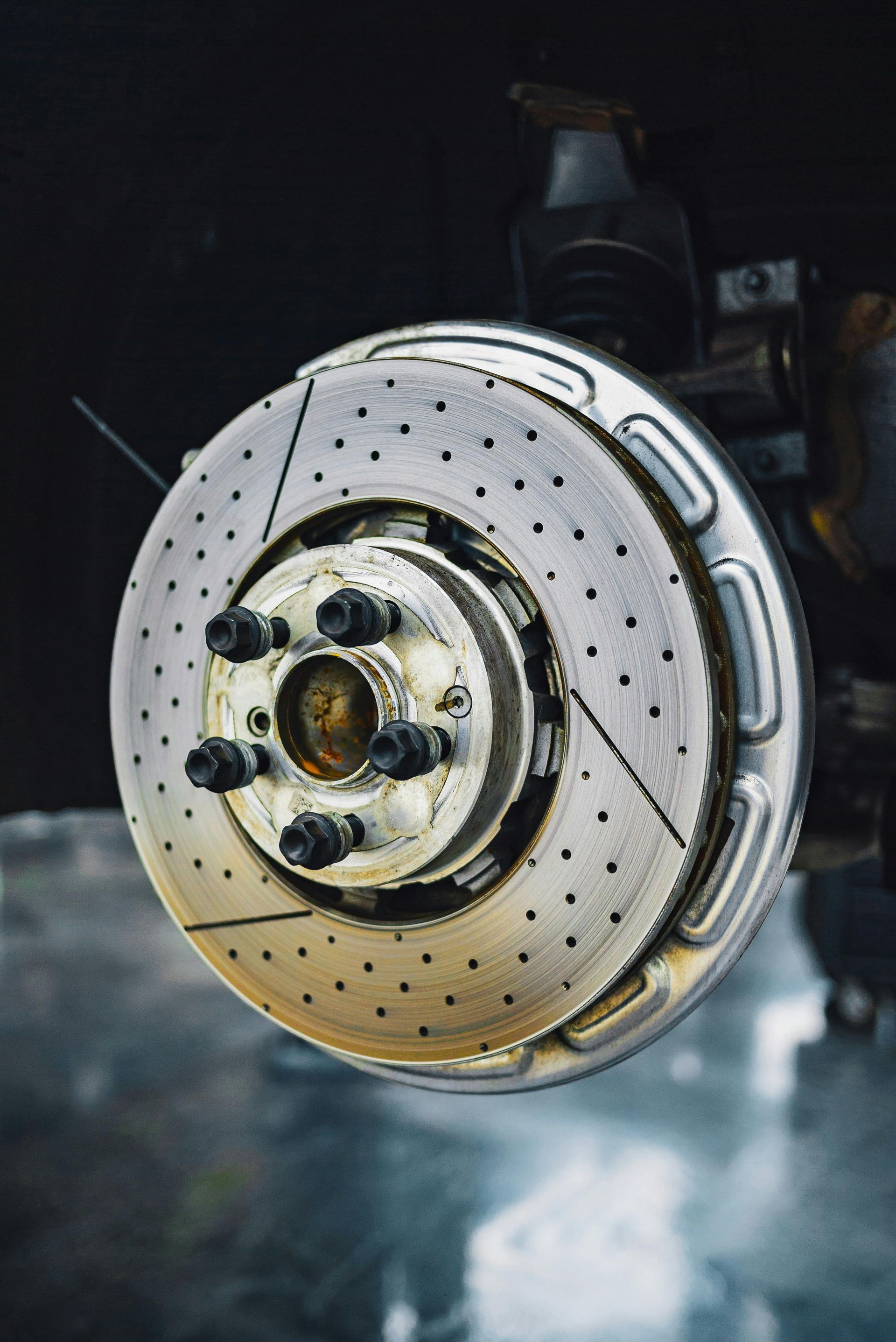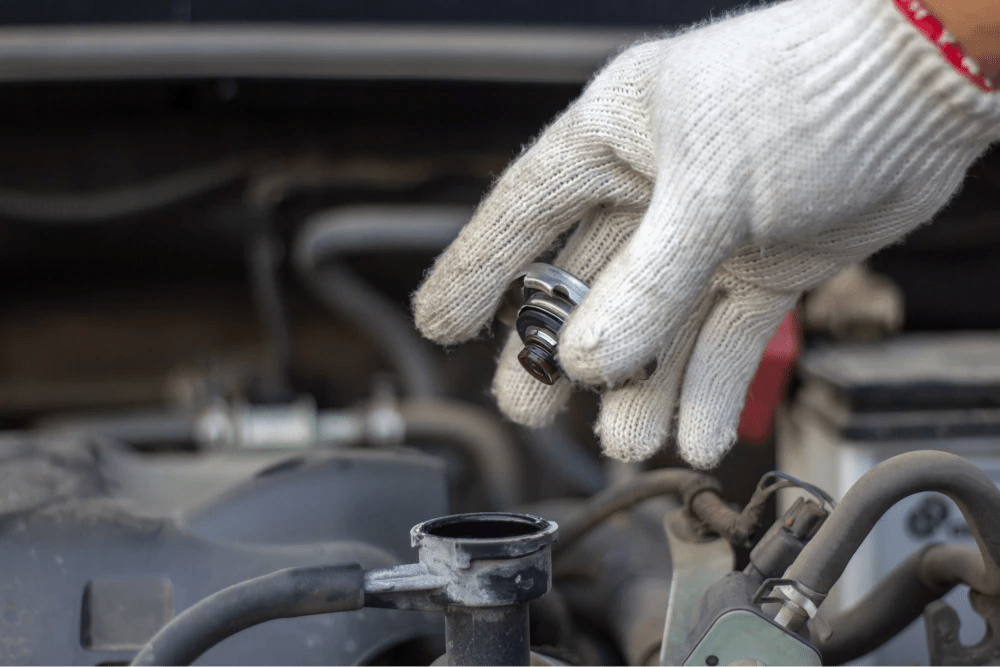By Gianpaolo Pagni
•
April 2, 2025
In the extreme heat of Phoenix, AZ, ensuring that your vehicle's radiator is in top shape is more important than ever. The radiator is a vital part of your car’s cooling system, designed to regulate the temperature of your engine, preventing it from overheating and causing irreversible damage. Without proper radiator maintenance, you risk engine failure, costly repairs, and unnecessary downtime. In this blog, we’ll explore the role of the radiator, common issues that affect it, and why regular radiator service is essential for the longevity of your vehicle. At Arizona Exclusive Car Care, we specialize in Radiator Service in Phoenix, AZ, helping drivers keep their vehicles cool and performing at their best. Whether you’re facing overheating issues or simply want to ensure that your radiator is in proper working condition, we’re here to help. Our certified technicians provide comprehensive radiator services that are tailored to the needs of Arizona’s unique driving conditions. Why the Radiator is Essential for Your Vehicle’s Performance The radiator plays a crucial role in your car’s engine cooling system, ensuring that your engine operates at a safe temperature. When your engine runs, it generates a lot of heat. Without a functioning cooling system, the engine can overheat, potentially leading to significant damage. Here's how the radiator fits into the equation: 1. Heat Regulation The engine produces heat during combustion. The radiator is responsible for cooling the coolant, which absorbs the heat from the engine. The coolant is then recirculated through the engine to absorb more heat, keeping the engine temperature stable. 2. Prevention of Overheating Without the radiator, the heat generated by the engine would build up, causing the engine to overheat. This can lead to a range of serious issues, including warped engine parts, damaged seals, or even complete engine failure. A properly maintained radiator helps prevent this by efficiently transferring heat out of the engine and preventing excessive heat buildup. 3. Improved Vehicle Performance A well-functioning radiator ensures that your engine operates efficiently by maintaining an optimal temperature. When the engine is kept cool, it runs at peak performance, which can improve fuel efficiency, enhance engine longevity, and provide a smoother driving experience. Common Radiator Problems and Signs You Need Service Despite its importance, the radiator is often overlooked until something goes wrong. Regular checks can prevent major issues from arising. Here are some common radiator problems and the warning signs you should watch for: 1. Coolant Leaks One of the most common issues that can arise with your radiator is a coolant leak. Coolant leaks can occur due to cracks in the radiator, loose hose connections, or a damaged radiator cap. If you notice puddles of coolant underneath your vehicle, it’s important to have the radiator inspected. Low coolant levels can cause the engine to overheat and lead to severe damage if not addressed promptly. 2. Rising Temperature Gauge If your vehicle’s temperature gauge consistently rises into the red zone, it’s a clear indication that your radiator may not be performing properly. This could be due to a clogged radiator, insufficient coolant, or a faulty thermostat. Overheating can quickly lead to engine damage, so if you notice this sign, it’s time to have your radiator examined by a professional. 3. Steam Coming from the Hood If you see steam coming from under the hood, it’s a strong sign that your engine is overheating. The radiator may not be able to cool the engine efficiently, causing the coolant to boil over and release steam. This is a serious issue that requires immediate attention to avoid engine damage. 4. Discolored Coolant Coolant should be bright, often green, orange, or pink, depending on the type. If you notice that your coolant is rusty, brown, or contains particles, this could indicate that your radiator is corroding or that there are deposits in the system. Discolored coolant can lead to blockages, affecting the radiator's ability to cool the engine effectively. 5. Strange Noises If your radiator is making unusual noises, such as gurgling or bubbling, it could be a sign of air trapped in the system or a problem with the radiator cap. Air in the cooling system can cause the coolant to circulate improperly, leading to overheating. The Impact of Arizona’s Extreme Heat on Your Radiator Living in Phoenix, AZ, presents unique challenges for vehicle owners, especially when it comes to keeping your car’s cooling system working properly. The extreme heat places added stress on the radiator, making it more likely to overheat or fail. Here's why: 1. Higher Operating Temperatures The intense heat in Arizona increases the demand on your radiator to keep the engine cool. When temperatures soar, the radiator must work harder to prevent overheating. If your radiator is already compromised in some way—whether due to leaks, clogs, or wear and tear—it may struggle to keep up with the heat, leading to engine trouble. 2. Evaporation of Coolant In hot climates like Phoenix, coolant can evaporate more quickly, which means that your vehicle may be losing coolant at a faster rate. This can result in a lower coolant level, which can severely affect the radiator's ability to regulate engine temperature. Regular radiator service ensures that your coolant levels are topped off and that there are no leaks in the system. 3. Stress on Components In addition to the radiator itself, other components of the cooling system—such as hoses, thermostats, and water pumps—can suffer from the harsh Arizona heat. High temperatures can cause these components to degrade more quickly, leading to potential failures if they aren’t regularly inspected and maintained. The Importance of Regular Radiator Service in Phoenix, AZ Maintaining your radiator is crucial to ensure your vehicle can handle Arizona’s extreme heat and continue running smoothly. Regular Radiator Service in Phoenix, AZ, can help prevent costly breakdowns and major engine repairs by addressing minor issues before they escalate. Here's how regular service can benefit your vehicle: 1. Prolongs Engine Life A properly functioning radiator ensures that your engine stays within a safe operating temperature range. By preventing overheating, regular radiator service helps extend the life of your engine and other vital components, saving you money on costly repairs or replacement. 2. Improves Fuel Efficiency When your engine runs at the right temperature, it operates more efficiently, which can improve your vehicle’s fuel economy. Overheating engines use more fuel to maintain power, so keeping the radiator in optimal condition helps save on fuel costs in the long run. 3. Prevents Overheating One of the most serious issues caused by radiator failure is engine overheating. This can lead to warped engine parts, damaged gaskets, or even complete engine failure. Regular radiator service can help detect any early signs of overheating and prevent more serious problems before they occur. 4. Avoids Unnecessary Downtime Radiator problems can cause your vehicle to break down unexpectedly, leaving you stranded and requiring expensive towing services. Regular inspections and maintenance from Arizona Exclusive Car Care can help identify issues before they lead to breakdowns, ensuring that your vehicle remains reliable. Professional Radiator Services at Arizona Exclusive Car Care At Arizona Exclusive Car Care, we provide comprehensive radiator services tailored to the unique needs of Phoenix drivers. Our experienced technicians are trained to diagnose and repair all types of radiator issues, ensuring that your vehicle stays cool and runs efficiently in Arizona’s extreme heat. We offer a range of services, including: 1. Radiator Inspections and Diagnostics Our certified technicians will perform a thorough inspection of your radiator to check for leaks, damage, and other issues. Using state-of-the-art diagnostic tools, we can quickly identify any problems and recommend the best solution. 2. Coolant Flush and Replacement Over time, coolant can become contaminated or lose its effectiveness. We offer coolant flushes and replacements to ensure that your cooling system remains clean and efficient. Flushing the radiator removes debris and prevents the buildup of minerals that could clog the system. 3. Radiator Repair and Replacement If your radiator is damaged beyond repair, we can replace it with a high-quality, reliable part. We use only the best components to ensure that your vehicle runs smoothly and efficiently. Whether you need a minor repair or a full radiator replacement, our team is here to help. 4. Preventive Maintenance At Arizona Exclusive Car Care, we believe that preventive maintenance is the key to keeping your vehicle in top condition. Our team can perform regular radiator check-ups to catch potential issues early and ensure your car is ready to face the Arizona heat. Why Choose Arizona Exclusive Car Care? As a BBB-accredited and AAA-certified service provider, we are committed to providing top-notch radiator services to Phoenix drivers. Here are just a few reasons why you should choose us for your radiator needs: Expert Technicians: Our team is highly trained and knowledgeable in all aspects of radiator maintenance and repair. Comprehensive Service: We offer a full range of radiator services, from inspections and diagnostics to repairs and replacements. Warranty on Our Work: We stand behind our services with a 36-month/36,000-mile warranty, giving you peace of mind knowing that your vehicle is in good hands. Convenient Location: We’re conveniently located in Phoenix, making it easy to get your vehicle serviced quickly and efficiently. Final Thoughts Your radiator is one of the most important components in your vehicle’s cooling system, especially in the intense heat of Phoenix. Regular radiator service is essential for ensuring that your engine stays cool, efficient, and protected from overheating. At Arizona Exclusive Car Care, we offer comprehensive radiator services to keep your vehicle running smoothly and reliably. Don’t wait until a minor issue turns into a major problem—schedule your radiator inspection today and protect the longevity of your vehicle! For more information on our radiator services, visit our website at Arizona Exclusive Car Care and let our expert technicians ensure your car is ready for Arizona’s heat!
















